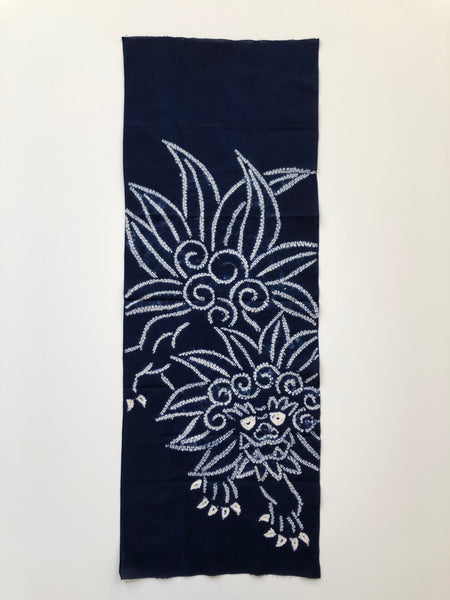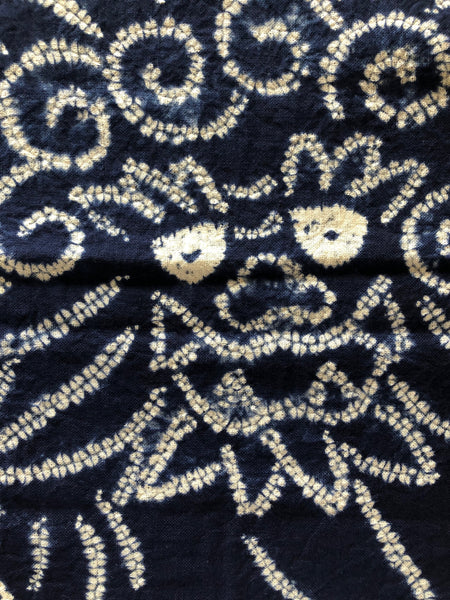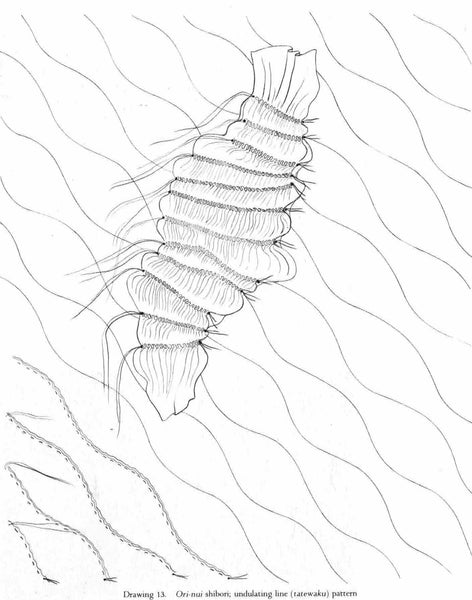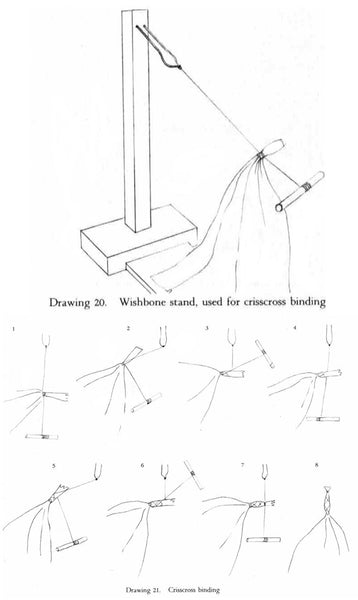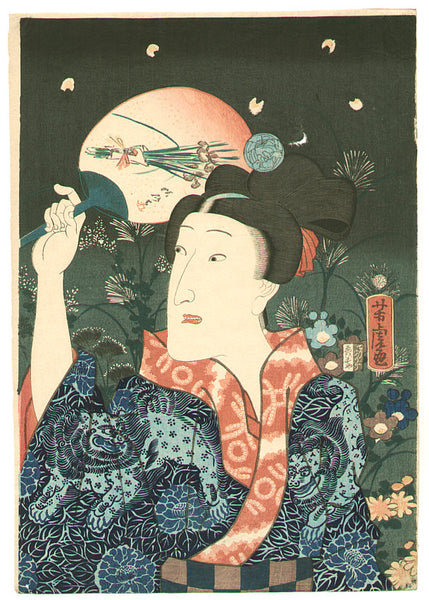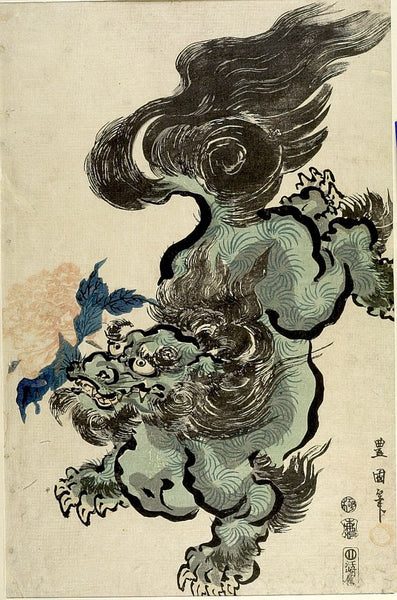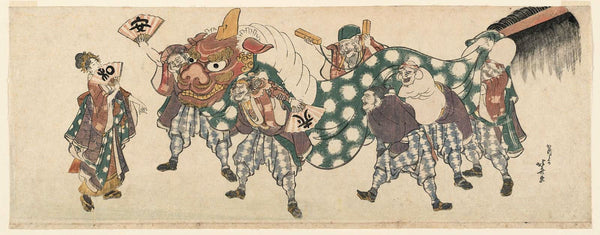Shishi Ori-nui & Makiage Shibori Tenugui
**If you are interested in a sold out tenugui, please email staff@yoshikowada.com to request a notification when it will be in stock. Production and delivery of certain tenugui can take up to one month from Arimatsu, Japan.
Folded-edge stitch-resist, bound-resist, & small capped-resist in lion pattern
Technique: Ori-nui Shibori - Folded-edge stitch resist drawn up tight before dyeing / Makiage Shibori - Stitching and crisscross binding in the shape of a motif. Process illustrations are from the book “Shibori: The Inventive Art of Japanese Shaped Resist Dyeing” by Wada, Rice, and Barton. (c)1983
Pattern: Shishi - Lion, but it can also refer to dogs that have magical properties. Stone shishi carvings are commonly used as architectural elements, flanking entryways or placed under the eaves of Shinto shrines to ward off evil spirits. Shishi are often depicted in pairs, one with mouth open and the other with mouth shut. The opened mouth relates to Ah, the first sound in the Japanese alphabet; while Un (closed mouth) is the last. These two sounds symbolize beginning and end, birth and death, etc. The lion dance originally came from China where performers in lion costume mimic lion movements to bring good luck and fortune. The dance is traditionally done during New Year celebrations in Japan.
Color: Indigo/White
Approximately 1m x 35cm (39in x 13in)
100% Cotton
Handmade in Arimatsu, Japan
Tenugui are scarf-size, all-purpose towels made of lightweight cotton, used in Japan for centuries and recently popularized and collected because of their beautiful patterns and graphic designs.
Ukiyo-e examples: Utagawa Yoshitora (1862) & Utagawa Toyokuni I (1789-1868) & Katsushika Hokusai (1795-1812)
View the full shibori tenugui collection
SFS SHOP
All sales are final. No returns or refunds.
Slow Fiber Studios is not responsible for lost or stolen packages. Please contact your local post office with your tracking number to resolve any issues with delivery.
Please allow up to five days from the original purchase date for Slow Fiber Studios staff to process orders.
International Customers
USPS First Class International shipping does not include tracking service. Please use Priority Mail International or higher to guarantee tracking to the destination.
Slow Fiber Studios is not responsible for packages held or confiscated at customs. Customs may delay your package delivery significantly. Some countries may require in-person pickup or charge fees before releasing your package. The customer is responsible for any customs fees. Using Priority Mail International or higher is more likely to expedite your package.
Wholesalers
Wholesale prices are available for select shop items. Please enquire with staff@yoshikowada.com for product information, prices, and terms.
Symposium Ticket Purchasing Policy
If cancellation notice for registration is received by the World Shibori Network Foundation on or before 31 May 2026 (00:00, Pacific Standard Time), ticket holders receive a full refund of the registration fee minus $50 for administrative costs.
If registration is cancelled on 1 June through 31 July 2026 (00:00, Pacific Standard Time), ticket holders receive a 50% refund on their registration fee.
If registration is cancelled on 1 August through 25 September 2026 (00:00, Pacific Standard Time), no portion of the registration fee will be refunded.
Cancellation requests due to visa, medical, or personal emergencies will be evaluated on a case-by-case basis. If accepted, ticket holders receive a full refund of the registration fee minus $50 for administrative costs. In all such cases, please email us with a medical or administrative letter on behalf of the reason to info[at]shibori[.]org to discuss your case.
Should the Organizers cancel the event, ticket holders will receive a full refund.
*All 12 ISS notices emailed to info[at]shibori.org








